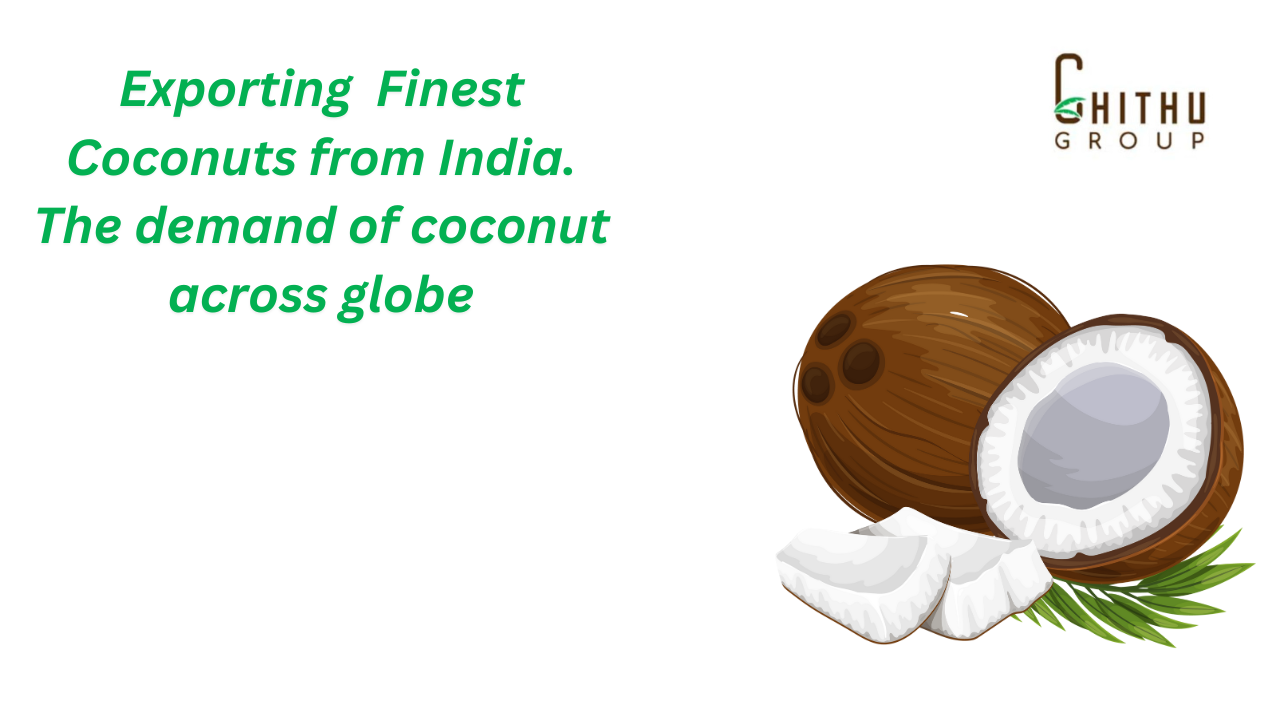India, graced with a tropical climate, thrives as one of the world’s leading countries in coconut production and exports. But, what do these coconut exports imply for the global market? And how do they cater to the increasing global demand for coconuts? Let’s explore.
The Magic of Indian Coconuts
The coastal and tropical regions of India, where coconut palms thrive, supply a variety of coconut-based products to the world. With Kerala, Tamil Nadu, and Karnataka spearheading, India’s coconut industry significantly contributes to its agricultural revenues.
-
Whole coconuts: Prized for their quality, the traditional Keralan green coconut and East Indian dwarf coconut are favorites in many parts of the world.
-
Coconut oil: Known for its numerous health benefits, Indian coconut oil adds a touch of exotic flavors to global cuisines and natural goodness to wellness routines.
-
Coconut shell products: The waste not, want not philosophy extends to coconuts as well. Even the discarded shells create an eco-friendly business that crafts bowls, cutlery, and charcoal.
The Health Wave
The world’s growing interest in health and wellness is propelling the demand for coconut products. Coconut’s many health benefits and its versatility in diets are boosting this trend.
-
Coconut water, as a refreshing drink, acts as a natural electrolyte replacement.
-
Coconut oil, with its lauric acid content, is favored in both cooking and cosmetic industries.
-
Coconut meat, rich in fibers and minerals, whirls into the perfect base for vegan ice-cream, delicious curries, or a nutritious breakfast bowl.
Navigating the Export Channel
The export industry for coconut isn’t free from challenges. Trade restrictions, tariffs, weather changes, and farming challenges pose hurdles. Nevertheless, there are also opportunities, as the coconut market grows in size and scope.
Opportunities in Value Addition
Value addition – turning whole coconuts into processed products like oil, milk, cream, and flour – holds great potential. Not only are such products easier to transport and have a longer shelf life, but they also fetch higher profits.
Issues Facing Coconut Farmers
Despite coconuts’ global demand, issues at the farming level persist. These include aging palm trees, lack of modern farming knowledge, and lack of government support. This is where more investment, research, and support could help sustain the industry.
“The growth of the coconut industry requires support at the grassroots level, from soil to oil, from seed to shell product.”
The Promising Future
With receptive global markets, it’s safe to predict that India’s coconut industry will continue to thrive. It’s not just about exporting coconuts; it’s about sharing a piece of Indian culture. So, the next time you’re sipping on your coconut water or adding a dash of coconut oil to your pan, spare a thought for those faraway coconut palms dancing in the Indian breeze.
In conclusion, the demand for coconuts across the globe presents an opportunity for India to reiterate its prominent role in global agriculture. But to make the most of this opportunity, strategic investments and proper understanding of the global market are key. It’s indeed time to focus on honing the industry, from the grassroots to the globe, for a lucrative and sustainable coconut-filled future! Are looking for a best coconut exporter in India
“From the grassroots to the globe—that’s the route to a sustainable and prosperous future for India’s coconut industry.”





